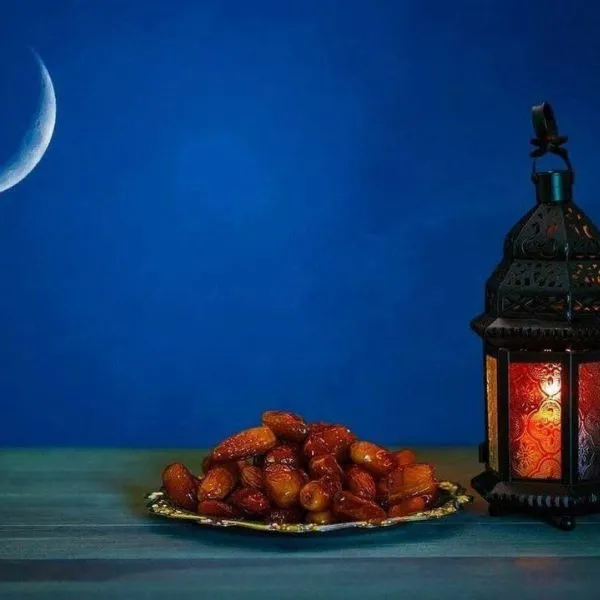The Significance of Ramadan: A Month of Fasting, Reflection, and Spiritual Growth
Ramadan is one of the most important months for Muslims. It is a time of fasting, prayer, and reflection. During this month, Muslims strengthen their faith and connect with Allah. Fasting during Ramadan is one of the Five Pillars of Islam, making it an essential part of the Muslim faith. In this blog, we’ll explore the significance of Ramadan, its traditions, and how it promotes spiritual growth.

What is Ramadan?
Ramadan is the ninth month of the Islamic lunar calendar. It is the holiest month for Muslims because it marks the time when the Qur’an was first revealed to the Prophet Muhammad (PBUH). Muslims fast from dawn until sunset. They abstain from food, drink, smoking, and marital relations during the day. The fast is a spiritual practice that helps Muslims draw closer to Allah and purify their souls.
Ramadan lasts 29 or 30 days, depending on the moon’s sighting. Each year, it shifts by about 10 days. This makes fasting experiences vary depending on the time of year.
The Spiritual Importance of Fasting During Ramadan
Fasting during Ramadan has deep spiritual significance. Here’s how it benefits Muslims:
1. Strengthening the Relationship with Allah
Fasting is a way to show devotion to Allah. Muslims believe fasting helps them purify their souls and earn Allah’s mercy. It is a time to seek forgiveness and grow closer to Allah.
2. Developing Self-Discipline
Fasting teaches self-control. Muslims avoid food, drink, and negative actions like anger or gossip. This builds self-discipline and strengthens spiritual focus. By refraining from worldly distractions, they focus on worship and improve their character.
3. Empathy for the Less Fortunate
Fasting also builds empathy. By feeling hunger, Muslims gain a better understanding of the struggles of the less fortunate. This inspires increased acts of charity during Ramadan. Many Muslims donate food, money, and time to help those in need.
Ramadan Traditions and Customs
Ramadan is filled with rich traditions that strengthen community and spirituality. Here are some key customs:
1. Suhoor and Iftar: The Pre-Dawn and Sunset Meals
Muslims begin their day with suhoor, a pre-dawn meal. It provides energy for the day’s fast. Suhoor typically includes fruits, whole grains, and plenty of water.
The fast is broken at iftar, the evening meal after sunset. Muslims traditionally break their fast with dates and water, as practiced by the Prophet Muhammad (PBUH). Afterward, they perform the Maghrib prayer and enjoy a larger meal with family and friends.
2. Taraweeh Prayers: Nighttime Worship
Taraweeh prayers are special prayers performed during Ramadan nights. Muslims pray after the Isha prayer, reciting portions of the Qur’an. These prayers strengthen their connection with Allah and provide an opportunity for deep reflection.
3. Charity: Zakat and Sadaqah
Ramadan is a time of increased giving. Muslims are required to give Zakat, a form of almsgiving. Many Muslims pay their Zakat during Ramadan for greater reward. Muslims also give Sadaqah, voluntary charity, to support the less fortunate. Acts of kindness and charity are central to the spirit of Ramadan.
The Last Ten Days of Ramadan: Seeking Laylat al-Qadr
The last ten days of Ramadan are especially important. Muslims believe that during these days, Laylat al-Qadr (the Night of Decree) occurs. This night is believed to be when the Qur’an was revealed to the Prophet Muhammad (PBUH). Muslims consider it the holiest night of the year.
Prayers offered on Laylat al-Qadr are highly rewarded. Many Muslims increase their worship, prayer, and reflection during these nights, seeking forgiveness and blessings.
Eid al-Fitr: The Celebration at the End of Ramadan
Eid al-Fitr marks the end of Ramadan. It is a day of joy and celebration. Eid is a time for Muslims to express gratitude, share with loved ones, and celebrate the successful completion of Ramadan’s fast.
Conclusion
is much more than a time for fasting. It is a month of spiritual growth, reflection, and charity. Fasting strengthens one’s connection to Allah, teaches self-discipline, and fosters empathy for those in need. Muslims also embrace increased worship, prayer, and giving during this holy month. The traditions of help bring Muslims closer to Allah and to each other, creating a sense of community and shared purpose. As Ramadan ends, Muslims celebrate Eid al-Fitr, marking a joyful conclusion to a month of devotion and reflection.


